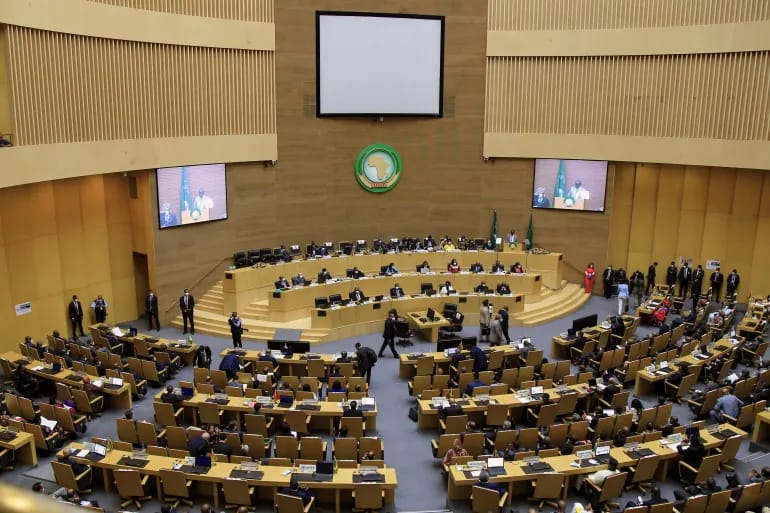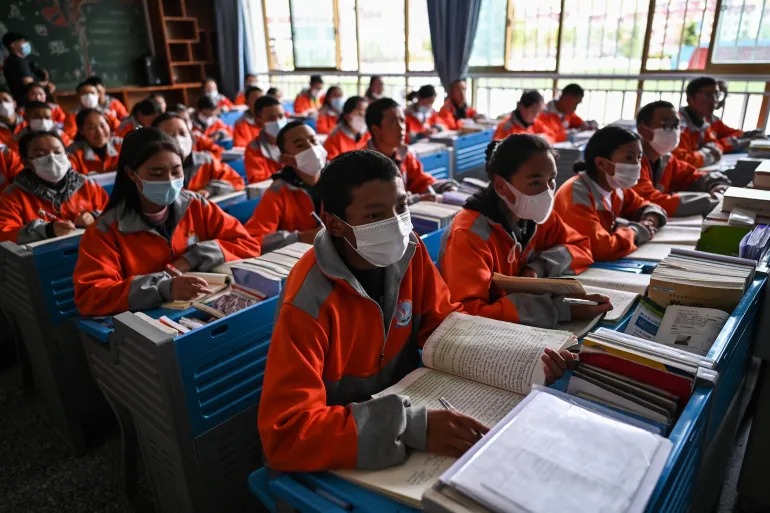In a swift and decisive move, the African Union (AU) has announced the suspension of Niger from its ranks, amplifying the escalating tensions surrounding the country’s political landscape. Following a coup on July 26 that ousted President Mohamed Bazoum, Niger has been grappling with a cascade of repercussions, including Western countries slashing aid and the Economic Community of West African States (ECOWAS) considering military intervention. This suspension, declared immediately after a meeting of the AU’s Peace and Security Council in Addis Ababa, marks another chapter in Niger’s tumultuous recent history.
The AU’s action arrives hot on the heels of ECOWAS’s strategic plans, where the regional body agreed on a “D-day” for launching a military intervention to address the deepening crisis. Despite ECOWAS’s commitment to exhausting diplomatic avenues, the African Union is critically assessing the implications of this approach. The AU’s call for restraint from external parties resonates strongly, emphasizing a firm stance against meddling in the affairs of the continent, including any involvement by private military companies.
AU Imposes Immediate Suspension on Niger Over Coup Fallout
The AU’s Peace and Security Council convened in Addis Ababa, Ethiopia, and emerged with a resolute decision to suspend Niger from the African Union. This move follows the West African nation’s tumultuous political events, including the coup that forcibly displaced President Mohamed Bazoum. The suspension, executed swiftly and decisively, underscores the AU’s commitment to maintaining stability and democratic governance across the African continent. This unprecedented action reflects the serious concerns that have arisen due to the coup’s aftermath.
Western Nations Cut Aid as ECOWAS Plans Intervention in Niger Crisis
As the political turmoil in Niger continues to unfold, numerous Western countries have responded to the coup by severing aid ties. The international community’s retraction of financial support underlines the gravity of the situation and emphasizes the widespread disapproval of the coup. Meanwhile, the Economic Community of West African States (ECOWAS) has taken a proactive stance, charting a roadmap that includes a potential military intervention. With ECOWAS’s “D-day” approach for deploying a regional strike force, the possibility of a military solution looms over the crisis.
AU Calls for Caution, Urges No Legitimization of Niger’s Military Government
In the midst of these developments, the African Union has raised a clarion call for careful consideration. While ECOWAS’s plan of action involves the threat of military intervention, the AU is reviewing the implications with circumspection. The AU’s stance aligns with the commitment to uphold democratic principles and avoid endorsing Niger’s military government through any premature legitimization. With President Mohamed Bazoum’s detention and ECOWAS’s cautious approach, the African Union is urging both its member states and the global community to refrain from actions that could inadvertently validate Niger’s current leadership.
In conclusion, the suspension of Niger from the African Union is a pivotal moment in the ongoing saga sparked by the July 26 coup. This action demonstrates the AU’s firm stand against disruptions to democratic processes and highlights the complexity of responses to political crises. As ECOWAS’s proposed military intervention strategy takes shape, the continent watches closely, mindful of the crucial balance between diplomatic negotiations and the potential use of force. The global community’s attention remains fixed on Niger’s uncertain path ahead, as regional and international players navigate the intricate landscape of this evolving crisis.
















